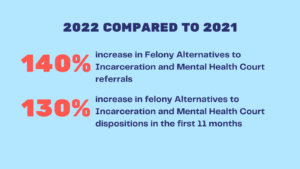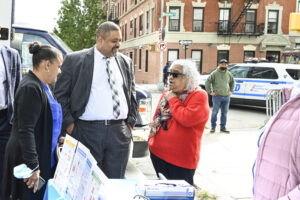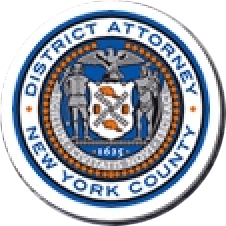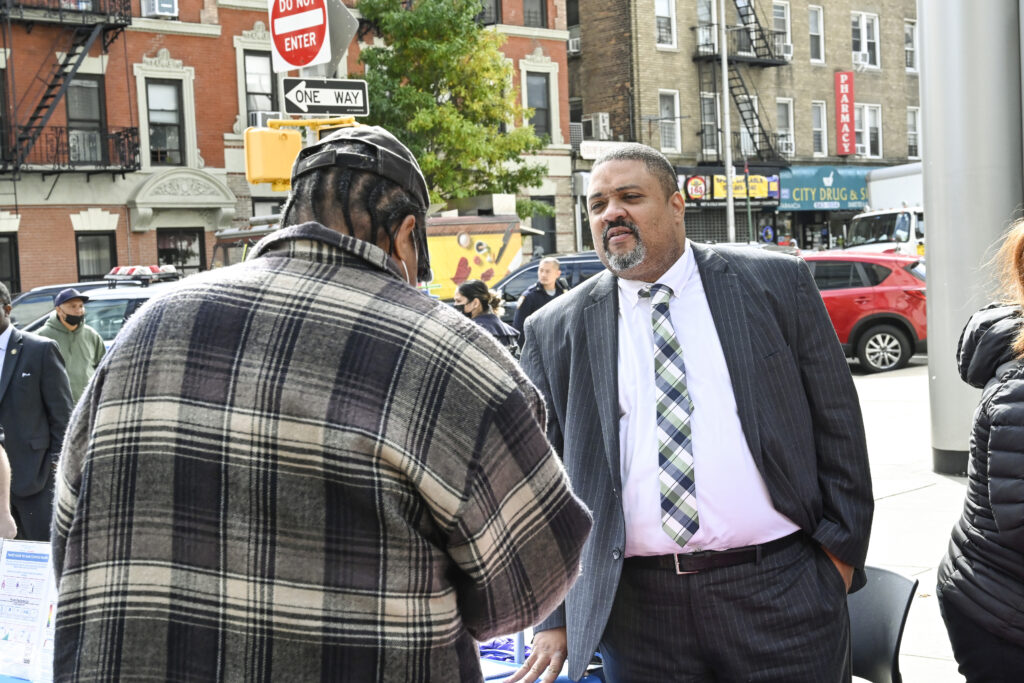PATHWAYS TO PUBLIC SAFETY DIVISION
Perhaps the most significant change to the Office during D.A. Bragg’s first year in office was the creation of a new division, Pathways to Public Safety, to enhance and elevate our use of programming and diversion. Specially trained Pathways Assistant D.A.s are embedded in each of the Office’s six Trial Bureaus to screen and assess every case as early as possible. We assess each case individually, and if diversion is appropriate, we tailor services individually to meet the person’s needs.
We have substantially increased our felony Alternatives to Incarceration referrals, developed a strategic plan to expand our use of restorative justice, and we’re working to expand Manhattan Mental Health Court.

Recognizing the unique needs of young people whose brains are still developing, D.A. Bragg created the Emerging Adult Unit within the Trial Division. Headed by an experienced Assistant D.A., the Unit supervises all of the cases in the Youth Part created under Raise the Age to ensure consistency and fairness in our practice. D.A. Bragg and his Chief Assistant District Attorney personally approve any cases the Office seeks to keep in adult court.

PEER NAVIGATORS
D.A. Bragg committed $9 million dollars to two community-based initiatives that aim to reduce recidivism and improve safety by supporting people with mental and behavioral health challenges. “To restore the sense of safety that New Yorkers deserve, on our streets and in our subways, we must rebuild connections to mental and behavioral health services for people with deeply entrenched needs,” D.A. Bragg said. “And we must do it in a way that honors their dignity and humanity.”

Neighborhood Navigators
The Office will fund neighborhood navigator programs in six neighborhoods, employing peer navigators who have similar lived experience as those they will be serving. Peers will conduct proactive outreach to build relationships with individuals who are unhoused, living on the street and experiencing challenges with mental health or substance use. Initial engagement will focus on building trust by meeting the basic needs of those they engage, such as food, clothes, and medical supplies.
Once a relationship is established, navigators will work across agencies and organizations to carefully reintroduce those they serve to longer-term solutions, such as behavioral health services or permanent housing.
Navigators will also engage with small businesses and help problem-solve when issues emerge involving unhoused people with mental health or substance use issues.
The office awarded nearly $6 million to The Bridge, a peer-founded housing and behavioral health services provider, to establish this navigators program and work directly with New Yorkers who are experiencing entrenched mental health and substance use issues
Court-based Navigators
The Office will also fund peer navigators in Criminal Court arraignments to provide additional support to people who are not being detained pre-trial—and to offer that support immediately when people come out of court.
The goal of peers connecting with people after court will be to set participants up for success in returning to court, completing diversion programming, addressing behavioral health issues, and laying the groundwork for longer-term treatment.
The Office awarded nearly $3 million to The Fortune Society, an organization that supports reentry and alternative-to-incarceration services, to create a network of Court Navigators that will support New Yorkers with deeply entrenched needs. Court Navigators will build trusting relationships with individuals arraigned in Manhattan Criminal Court who may have a mental illness or substance use disorder.
D.A. Bragg is funding 6 months of planning and 3 years of implementation for both initiatives. The programs are funded through the Criminal Justice Investment Initiative (CJII), which was created with funds seized from banks in the course of major fraud investigations.




